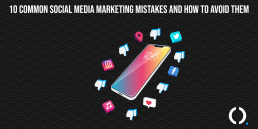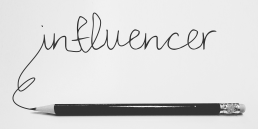Reciprocity - reh·suh·pro·suh·tee resɪˈprɒsəti
"Tit for tat"
"You scratch my back, I’ll scratch yours"
"Quid pro quo"
"One hand washes the other"
"Give and take"
"A favour for a favour"
The notion of reciprocity is so deeply ingrained in us that for most it is an involuntary response. That is to say, when someone does something for you, you are inclined to do something for them in return.
Reciprocity & The Marketing Industry
Marketers have known about the notion of reciprocity for some time & have utilised this natural instinct to their advantage.
Let’s talk about it in a B2B setting. A business providing people with resources or information to help them excel makes these people more inclined to reciprocate & provide value in return. This could be in the form of a follow of your LinkedIn page, or it could be something more tangible such as, becoming a paying client of your business, or referring work to you from other places.
It Helps Build Those Working Relationships
Reciprocity is also used to build working relationships between businesses or between customers and businesses by offering incentives to encourage others to promote your brand. “If you like our business, refer a friend and we will give you both £50 off your next bill as a thank you!” – this is a common tactic used by the likes of telephone companies.
It Underpins Influencer Marketing
Influencer Marketing is inherently based on the principle of reciprocity & closely follows the example given earlier.
When all parties involved benefit mutually from a transaction, this is enabling reciprocal emotions.
An influencer is paid by a brand to promote a product or service, and in return, they provide discounts or other incentives for their followers to buy using their discount/referral code. The buyer makes a saving & it drives stronger & more meaningful conversions to a business.
With all that said - why is Influencer Marketing taking so much longer to get off the ground in the UK than it is in the US?
In my view, the UK audience is often more sceptical of people promoting things than our pals across the pond. Notwithstanding the fact that with Influencer Marketing comes an inherent element of self promotion – a tough pill to swallow for the self-deprecation of plucky brits.
However, the Influencer Marketing industry consistently produces greater results than most other outlets for brands (naturally depending on the sector your business is in).
In which case, why are some brands still holding back from using influencer marketing, in spite of the long list of success stories produced as a direct result of the work of the sub-sect of the marketing industry?
A Lack Of Confidence Maybe?
Could it be lack of confidence in a newly emerging market? Could it be a reluctance to move budgets or change strategies in uncertain economic conditions? Could it simply be a reluctance to believe in the notion of Influencer Marketing?
I believe it’s attributable to all the above and more – a compounded effect of fear & scepticism that is ultimately making the value proposition all the more valuable for the brands that are brave enough to fully embrace the change & be daring in their strategy.
Reciprocity doesn’t stop at influencer marketing, & every brand should be providing assets to prospective businesses/customers to maximise engagement & improve potential for gaining new clients.
Do you utilise this core principle as part of your marketing strategy?
I’d love to know your thoughts on the applications of this principle as a business strategy.
If you’re interested in knowing more about reciprocity & how it determines influence in society, check out this book by Dr Robert Cialdini – Influence; The Psychology of Persuasion (one of my favourite reads!)






